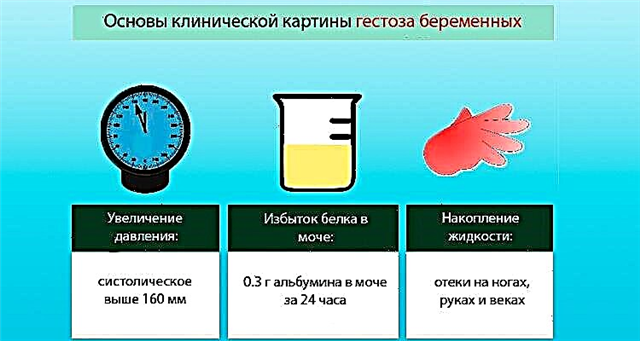Angina is one of the types of respiratory diseases of an infectious nature, in which the tonsils become inflamed. Most often, it is provoked by pathogens that penetrate the mouth or nose and actively multiply on the mucous membranes. Therefore, in the treatment of tonsillitis, antibiotics are often used, depending on the situation, using pills or injections.
Antibiotic indications
 Everyone knows about the benefits and dangers of antibiotics. But for some reason, when the disease affects everyone personally, many begin to thoughtlessly use this remedy, trying to quickly get rid of the symptoms. Without even realizing that they cause serious harm to the body and, first of all, to the immune system, which should protect a person from uninvited invisible guests. Fortunately, no one independently prescribes antibiotics for angina in injections.
Everyone knows about the benefits and dangers of antibiotics. But for some reason, when the disease affects everyone personally, many begin to thoughtlessly use this remedy, trying to quickly get rid of the symptoms. Without even realizing that they cause serious harm to the body and, first of all, to the immune system, which should protect a person from uninvited invisible guests. Fortunately, no one independently prescribes antibiotics for angina in injections.
There are specific indications for the use of antibiotics. Moreover, these drugs are divided into several groups, the action of which may differ significantly. Therefore, if the throat just sore, and even the temperature rises, swallowing the first pills that come across is with a high probability a way only to complicate the course of the disease.
Antibiotics are used for infectious sore throat, when, according to the results of bacteriological sowing of mucus from the throat, pathogenic bacteria are found, their type is determined and tests are made for sensitivity to various types of drugs.
As an ambulance, a doctor may prescribe a broad-spectrum antibiotic for:
- an extensive inflammatory process in the throat;
- severe purulent inflammation of the tonsils;
- acute angina against the background of purulent sinusitis;
- persistent high body temperature;
- inflammation of the ear and / or cervical lymph nodes;
- suspicion of complications.
But this does not relieve the patient of the need to undergo a full examination and pass all tests. Perhaps, according to their results, the drug will be replaced by another, or its dosage will be adjusted. Then the pills can be replaced with injections or vice versa.
The advantage of injections
 In the form of injections, the same drugs are usually used as in the form of tablets: "Ampicillin", "Erythromycin", "Oleandomycin", with purulent sore throat - cephalosporins. The only difference is that the injections act much faster, since when the drug is administered intramuscularly, it immediately enters the bloodstream. The pill must dissolve in the stomach, be absorbed through the intestines, and only then it begins to have a therapeutic effect.
In the form of injections, the same drugs are usually used as in the form of tablets: "Ampicillin", "Erythromycin", "Oleandomycin", with purulent sore throat - cephalosporins. The only difference is that the injections act much faster, since when the drug is administered intramuscularly, it immediately enters the bloodstream. The pill must dissolve in the stomach, be absorbed through the intestines, and only then it begins to have a therapeutic effect.
Accordingly, antibiotic injections are used:
- with moderate and severe form of the disease, when the fastest possible effect is needed;
- with severe inflammation and swelling of the tonsils, when swallowing is difficult;
- in case of serious violations of the digestive tract, when the ingress of an antibiotic into them is extremely undesirable;
- with frequent vomiting, when the drug taken orally does not have time to be absorbed and excreted;
- for the treatment of young children in the absence of other forms of this drug that can be used (syrups, mixtures).
New generation antibiotics no longer need to be injected 4-6 times a day, as was practiced 20-30 years ago. Now 1-2 injections a day are enough, as long-acting drugs are used. But all appointments are made strictly individually.
Disadvantages of injections
There are also disadvantages in the treatment with antibiotic injections, which must also be considered when choosing the form of the drug:
- The price of injectable drugs is always higher than that of tablets.
- With home treatment, there should be someone who can give injections regularly.
 If the drug is administered incorrectly, there is a risk of hematoma formation.
If the drug is administered incorrectly, there is a risk of hematoma formation.- If sterility is violated at the injection site, inflammation or an abscess may occur.
- Allergic reactions to intramuscular administration of an antibiotic are always more severe than to tablets, up to anaphylactic shock.
Therefore, if, nevertheless, the doctor recommends the use of antibiotics in the form of injections, it is necessary to create optimal conditions in order to avoid the troubles associated with this type of treatment: buy disposable syringes and an antiseptic, find a qualified nurse, protect the injection sites from hypothermia and dirt.
Before the first use of an antibiotic, a test is made for this type of medicine. This is a subcutaneous injection during which the minimum dose of the drug is administered. Then the reaction of the organism is observed.
If there is no redness of the skin around the injection, any types of rashes, swelling, significant expansion of capillaries, then everything is fine - the drug can be used. Otherwise, a replacement must be made.
Injections for children
In the treatment of angina, injections are prescribed for children more often than for adults. This way you can quickly achieve the desired effect and at the same time minimize damage to the intestinal microflora, which is very important for the smallest, often already suffering from dysbiosis (especially infants on artificial feeding).
All babies do not like injections, but the wrong procedure can literally damage the child's psyche. Therefore, it is very important when giving injections to children to try to observe the following rules:
- Prepare the child for the procedure in advance, show and tell how this will happen using a doll or favorite toy as an example.
- Do not deceive that the process is painless. It is better to honestly admit that it will hurt, but not very much, and then the throat will quickly pass.
 Mom should not leave the child alone with the medical staff, he must feel support.
Mom should not leave the child alone with the medical staff, he must feel support.- Treat with understanding the fears and cry of the baby, do not make fun of, but tenderly soothe and encourage him.
- Never scare a child with an "angry aunt with injections" when he is healthy and just indulges.
You should not accustom your child to the fact that for every stubborn injection he will receive a reward. There can be different situations in life, and he must understand that in this case the reward is an improvement in his well-being, and he does it for himself, and not for a candy or a toy.
Important! You should never give injections to a child in a dream. No qualified nurse will do this. But some mothers think that it’s better this way, because “the child will not have time to be scared”. He will have time, and more than from an injection in a waking state, for which he will be psychologically ready.
Not only will the child wake up from fear and pain, and it will be difficult to calm him down later, but there is also a huge risk of breaking the needle right in the muscle if he suddenly jerks.
Additional procedures
Injections alone are not enough to quickly cope with a sore throat. Moreover, against the background of injections, a reception is simply necessary:
- anti-inflammatory drugs - in order to quickly stop inflammation and relieve a sore throat;
- antipyretic - if the thermometer has risen above 38;
- antihistamines - to quickly relieve laryngeal edema and prevent an allergic reaction to an antibiotic;
- immunostimulating - to activate the body's own defenses.
 Many people mistakenly believe that taking probiotics to restore the intestinal microflora is not necessary after injections with antibiotics. This is not so - the microflora is still disturbed, since the antibiotic acts on the entire body, partially killing beneficial bacteria. Natural yoghurts or kefir can be used as probiotics.
Many people mistakenly believe that taking probiotics to restore the intestinal microflora is not necessary after injections with antibiotics. This is not so - the microflora is still disturbed, since the antibiotic acts on the entire body, partially killing beneficial bacteria. Natural yoghurts or kefir can be used as probiotics.
Gargling and washing the throat with antiseptic solutions or decoctions of medicinal herbs helps to quickly get rid of accumulated mucus, soothe and moisturize irritated mucous membranes, improve blood circulation and accelerate their healing. Children from 5-6 years old and older can gargle on their own, babies can rinse it with a syringe.
Inhalations, aerosols and throat sprays deliver drugs directly to the tonsils and thereby enhance their effectiveness.
A good effect is obtained by treating the tonsils with Lugol's solution or an oil solution of chlorophyllipt. Of the physiotherapeutic procedures, the quartz tube helps perfectly, but this device is only available in the clinic or hospitals.
An important part of treatment is bed rest and a well-chosen diet. With severe inflammation, hot, spicy, acidic and too hard food, carbonated water, packaged juices - anything that can irritate the throat is categorically contraindicated. Until the condition improves, it is better to use weak broths, mashed vegetable soups, boiled cereals, jelly.
Drinking plenty of warm drinks will relieve sore throat, flush mucus, and moisturize irritated mucous membranes. Herbal teas and warm milk can help flush out toxins, but they can also weaken the effects of antibiotics, so check with your doctor about what to drink in your case. Perhaps this is just a weak tea with honey or a decoction of chamomile.

 If the drug is administered incorrectly, there is a risk of hematoma formation.
If the drug is administered incorrectly, there is a risk of hematoma formation. Mom should not leave the child alone with the medical staff, he must feel support.
Mom should not leave the child alone with the medical staff, he must feel support.

